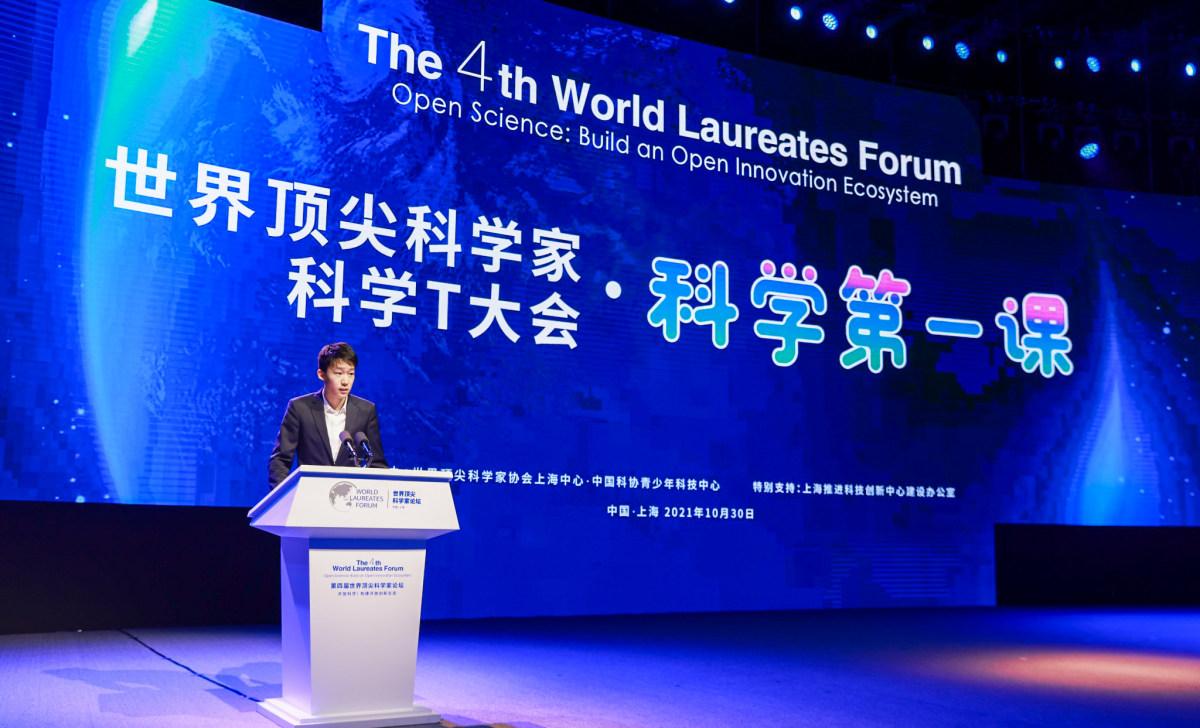Last night, the first activity of the Fourth World Top Scientists Forum, "Science Lesson I", was staged on the banks of Dishui Lake, and in the next few days, 131 of the world's top science award winners, dozens of academicians of the Chinese Academy of Sciences and the Chinese Academy of Sciences, and 132 top young scientists will carry out nearly 100 academic forums and exchange activities through the "offline + online" method.

Science T Conference between "Little Scientists" and "Strongest Brains": The First Lesson of Science is the leading activity of this forum and an important part of the forum, aiming to provide a platform for young people with scientific careers to communicate directly with top scientists, support scientific reserve talents, and show the contemporary small scientist style of 100 top students.
This year, more than 80 science teenagers from all over the country participated in the science covenant. Michael Levitt, the 74-year-old Nobel Laureate in Chemistry, vice president of the World Association of Top Scientists, participated in the second live, and in the face of the innocent and childish faces in the audience, he encouraged: "I often talk to young people, they always have new ideas, they are some new faces, and the future belongs to young people." At the same time, he also hopes that young people will learn to accept failure, "a good scientist, 99% of the time is wrong, we must learn to accept making mistakes, we will gain a lot from mistakes." 」 ”
During the course of the class, the scientific teenagers will write the inspiration, confusion, and ideas they have generated on the tablecloth. They will also ask questions to the big names in science on the spot. Why do different genes have different life cycles, and why does a small change cause disease in people? Can we change our human brains and behaviors on the basis of changing signals? What are the common misunderstandings of the public about quantum communication, quantum computers, and quantum information concepts, and what explanations and clarifications should be made? ...... In this regard, Michael Levitt, Raymond Stevens, provost of biological sciences and chemistry at the University of Southern California, and Chinese scientists Jiang Xuefeng and Jin Xianmin answered one by one.
Although science and technology have made the world a better place, there are still many problems that need to be solved: carbon emissions, food security, artificial intelligence security... "T Conference", can the time function be created? What impact does traversing history have on reality? Is there a building material that allows room temperature to be regulated at will? Where does the material sucked in by the black hole go? Will the black hole disappear? ...... The 11 "curious questions" are also sealed in containers like lightsabers for young people to answer in the future.
Author: Shanghai Radio reporter Li Xuemei
EDIT: Wrap up
Editor-in-charge: Jin Xiaoying